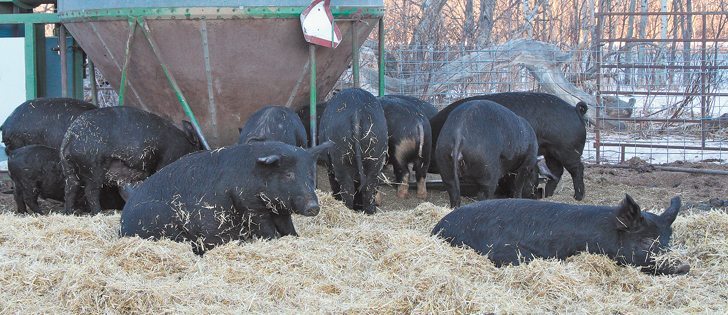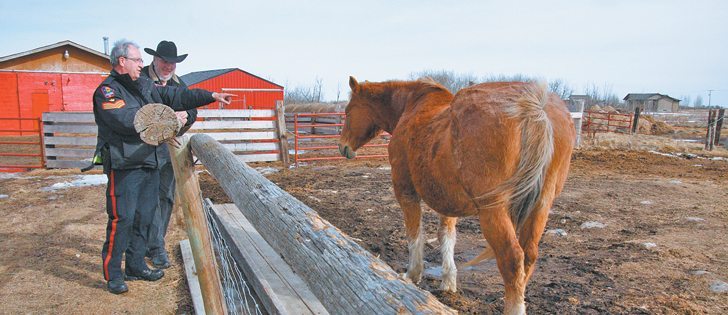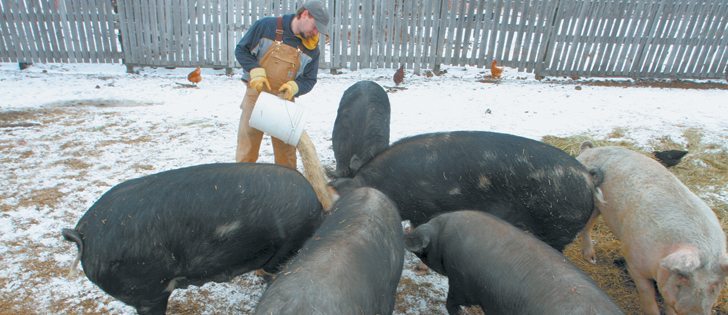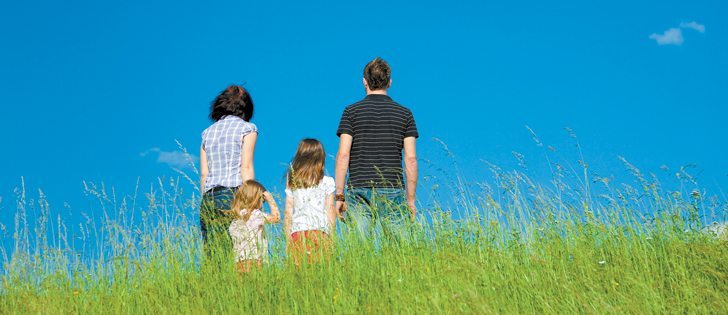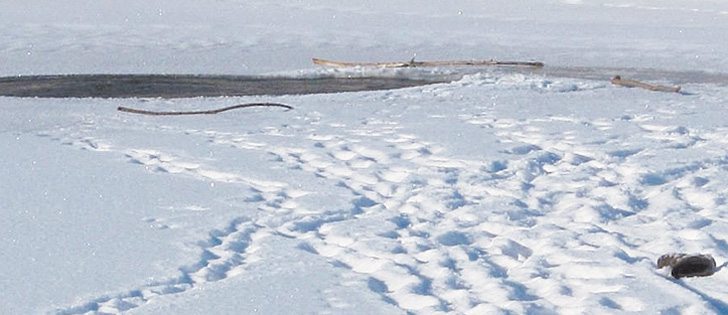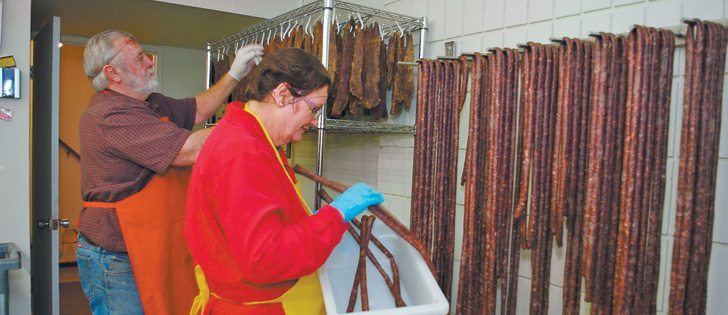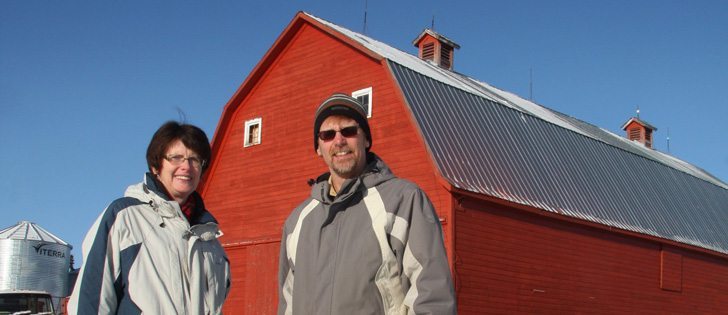Dispelling myths | Successful small-scale farmers use their experiences to help others interested in making agriculture a career
PILOT MOUND, Man. — Stuffing ground beef into one-pound plastic bags is not a glamorous job, but the messy reality doesn’t bother Clint and Pam Cavers.
Running a ranch and a meat shop has taught the Caverses that farm life is more about meat covered aprons and less about the sun setting over a rustic barn.
Clint and Pam, owners and operators of Harborside Farms, raise pastured hogs, grass-fed cattle, pastured poultry and honeybees on land north of Pilot Mound with their three daughters, Mika, 18, Tawny, 13 and Autumn, 10.
Read Also
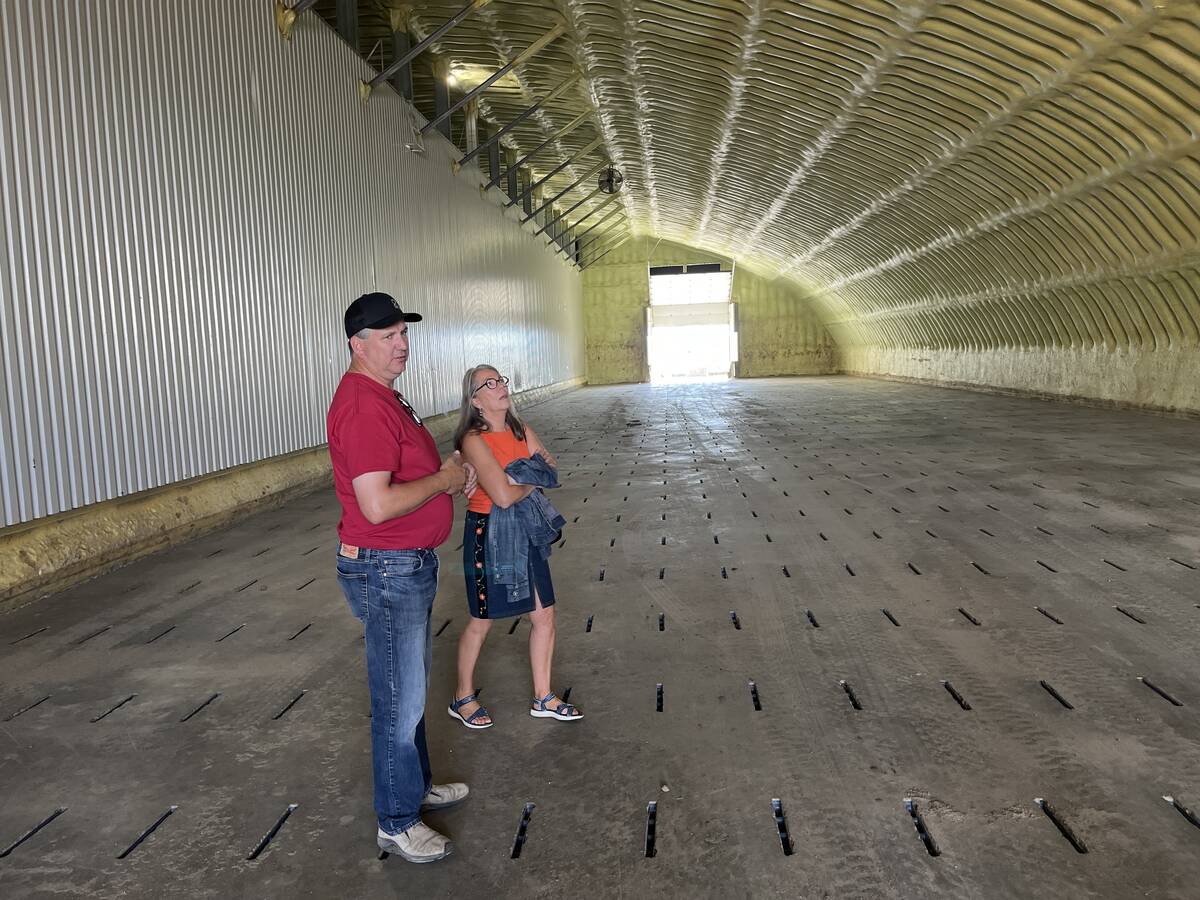
Potato farm requires year-round management
The most recent Open Farm Day in Alberta showcased agricultural producers across the province educating the general public about the process that is required is to get food to their table.
The Caverses raise heritage livestock breeds in a natural fashion on their 200 acres on a ridge with meadows and oak trees.
Mulefoot pigs, a black breed with long hair, live outside on straw over the winter. Chickens are kept outside in free-range pens and cattle are fed in a pasture.
The Caverses also operate a meat processing shop on their farm, a value-added enterprise that helps them generate more income from their efforts.
On a warm Wednesday in February, Clint and Pam, both clad in aprons and Pam in a ball cap, worked at a rapid pace stuffing ground beef into one pound plastic bags.
Most of the beef will end up in freezers in Winnipeg, where the Caverses deliver a truckload of growth hormone- and antibiotic-free meat twice a month.
They meet their “eaters,” which is Pam’s term for their customers, at parking lots across the city.
The Caverses’ farm isn’t organic because buying organic feed can be logistically challenging and expensive. However, the lack of an organic brand hasn’t held them back because the Caverses have built a strong relationship with their eaters.
“We’re the face of it (the product),” Pam said. “They know who we are.”
She said their typical customer is an urban mother who wants her children to eat nutritious food.
Clint, who grew up on a farm near Pilot Mound, and Pam, who grew up in Winnipeg and other cities, have sold meat directly to Manitoba eaters for a dozen years.
They were the first farmers in the province certified by the Humane Society and are among the best-known small-scale farms in the province, making them a go-to resource for people who would like to start a small farm in Manitoba.
As someone who has made the transition from urbanite to livestock producer, Pam said wannabe farmers need to realize that farming is nothing like an episode of Little House on the Prairie.
“When you live urban and want to go to the rural, you have this dream of what it’s going to be like and how fantastic the air is going to be.… You’re going to live in the country and how great it will be,” Pam said in a confident voice that bounced off the walls of the small meat processing shop.
“I had expectations about how it was supposed to be, then soon realized that’s not how it is at all.”
Even though a romantic notion of farming can be a psychological roadblock, Pam and Clint believe that urbanites can become successful farmers.
“Everybody has to learn sometime. I wasn’t born knowing how to drive a tractor or work with cattle,” Clint said.
“If anybody is willing to put the time in that it takes to learn those things, then yes, anybody can farm.”
However, they also believe that potential producers should get a taste of the farming life before taking the plunge.
As a result, they host willing workers on organic farms (wwoofers) and are part of the Manitoba Farm Mentorship Program, where interns can work on farms.
Pam said interns are more committed to farming.
“The wwoofing program is more for tourism,” she said.
“They come to immerse themselves in the culture, but they might only work a couple of hours per day in exchange for room and board.”
The wwoofers who work at Harborside Farms may not put in 12-hour days, but having a young person from France, Germany or New Zealand at your dining room table does offer other benefits, Pam said.
“There are real cool things that happen.”
For example, Mika, Tawny and Autumn hear fresh perspectives on topics such as education and travel.
“So, in your country you don’t have go to university right away? In fact, your country encourages you to travel? Whoa.”
The 20 or so wwoofers that have stayed with the Caverses likely made an impression on Mika because when she graduates from high school this spring, she plans to travel for a bit “to figure some things out.”
One thing she knows for certain is that she won’t be spending the rest of her days trapped in a city.
“That’s not an option. I go to the city sometimes and I can hardly stand (it)…. It’s too loud.”
Besides training farm interns and hosting wwoofers, the Caverses also respond to questions, nearly every day, from people across North America who would like to start their own small-scale livestock farm.
There are times, especially after a long day, when responding to an e-mail or taking another phone call becomes burdensome, Clint said, but 99 percent of the time he’s happy to help.
“People know we’re willing to talk about the failures we’ve had and some of the successes, and trying to steer people through that,” he said.
“It feels good to be able to help folks, younger and older … through some of the pitfalls.”




